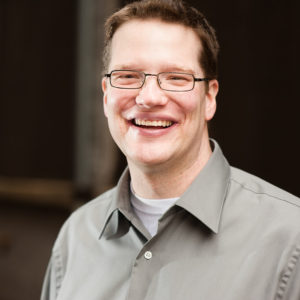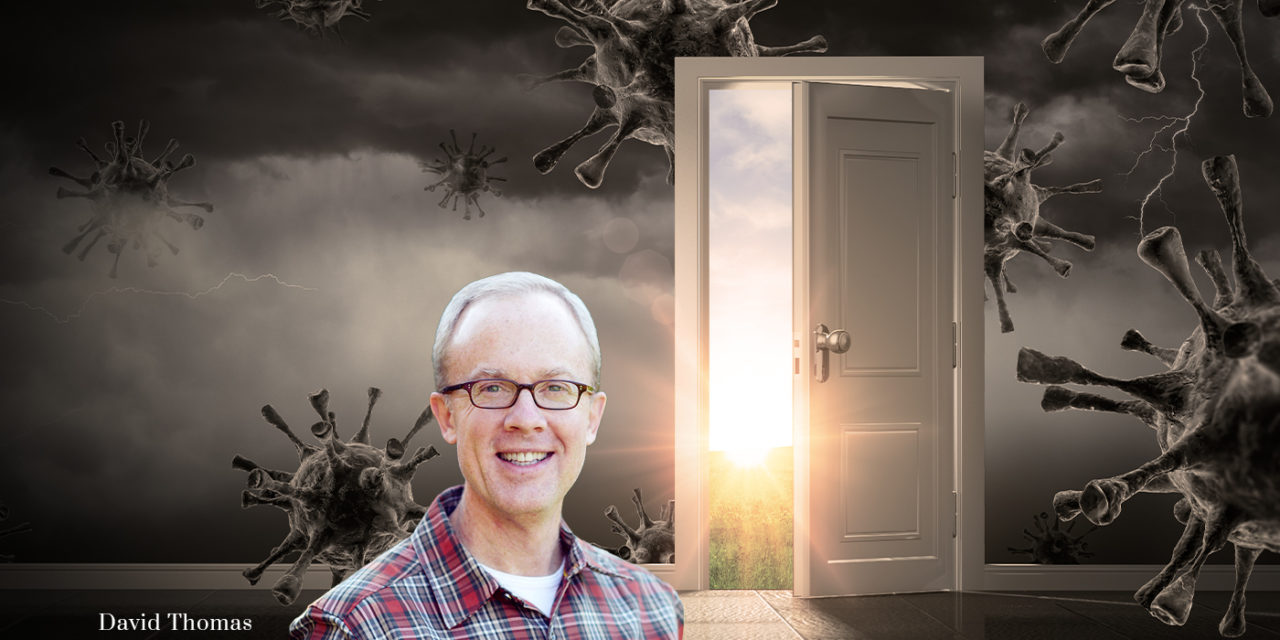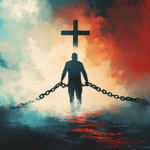A Light+Life Podcast
With guest David Thomas
Hosted by Brett Heintzman

Jeff Finley
Light + Life Executive Editor
Jeff Finley is this magazine’s executive editor. He joined the Light+Life team in 2011 after a dozen years of reporting and editing for Sun-Times Media. He is a member of John Wesley Free Methodist Church where his wife, Jen, serves as the lead pastor.
by Jeff Finley
The COVID-19 pandemic has led to dissension, discouragement and decreased attendance within churches. Many Christians may see these circumstances as obstacles to ministry. But what if our present challenges are actually opening the door to spiritual awakening in our congregations, nation and world?
David Thomas, a senior adviser to the New Room Conference and Network, shared his perspective about the possibility of awakening on a new episode of “The Light + Life Podcast” hosted by Brett Heintzman. Thomas and Heintzman reflected on the themes of Thomas’ plenary message that opened the 2021 conference in late September.
New Room organizers wanted this year’s gathering to include processing what Christians have been through during the COVID-19 pandemic, but they didn’t want to see recent experiences as only setbacks. Instead, without minimizing the seriousness of the pandemic, Thomas said New Room leaders hoped conference participants would see recent and current events “through God’s eyes as an open door, that so much has opened to us if we have the eyes to see it. Especially around awakening, there is openness now in us toward the reality of our desperation. There’s openness toward our radical need for more of God. There’s openness in us toward deeper opportunities in unity.”
New Room leaders anchored themselves in Revelation 3:8, “I know your deeds. See, I have placed before you an open door that no one can shut. I know that you have little strength, yet you have kept my word and have not denied my name.”
But what exactly is the New Room Conference?
“The New Room Conference is this gathering of friends from all across the pan-Wesleyan family and beyond who are just honest about the reality that we are facing — that we are in such a freefall culturally and spiritually. The church seems so weak to face the challenge. We either bail out or lean in, and lean in to God,” Thomas said. “We are those that just acknowledge we’re the best-resourced Christians who’ve ever lived. If our ideas and ingenuity and energy were enough to solve the problem we’re facing, it would have happened by now, and so what we’re needing is something only God can do. We have to have something from His hand, a work of His grace.
The conference focuses on the need and desire for spiritual awakening.
“We named the conference New Room after the name of John Wesley’s original building,” said Thomas, referring to the meeting house in Bristol, England, that Wesley had built in 1739. “We take that name for our conference as a gesture toward those sacred origins for awakening, but the word means so much more to us. It’s that we’re desperate for God to do something new, and we’re willing to do whatever it takes in our lives to make room for Him to do it.”
Heintzman noted the previous conference planned for 2020 was changed to an online-only event, and that experience seemed more like a closed door.
Thomas acknowledged that “we have been through the deepest, most dramatic earthquake in the life of the church that any of us have living memory of.” He noted that nearly all church buildings were closed last year for Easter.
“It did feel like we were shut down — shut in,” said Thomas, who added the reality is that the pandemic has “opened up so much for us in terms of humility, discovery, repentance and opportunity. I think that’s what Jesus has been trying to get our attention on.”
Thomas views the pandemic as revealing to Christians that the church is weaker than we knew.
“In many ways, COVID didn’t cause anything. COVID was like a tide that went out and revealed what was underneath the surface all along,” Thomas said. “This kind of shaking is what awakening looks like in its earliest stages.”
The Winnowing
Citing John the Baptist’s repentance-focused ministry that preceded and then briefly overlapped Jesus’ miraculous ministry years, Thomas noted, “There is no move of God until there has come this winnowing —this sort of hard confrontation with reality.” He described the present time as “an opportunity for God to restore to the church a repentance sensibility. We lost the language of repentance. We don’t have that sense of biblical repentance of trembling over our sin, of just pleading with God for His mercy, not His wrath.”
Does a person need to be a pastor to help usher in a time of repentance and awakening? Not according to church history:
“It’s good for us in the Wesleyan stream of the church to remember that this movement that we are descendants of was led by common lay men and women. They were not clergy. They were tradesmen and farmers that had been moved by the grace of God and joined up with the awakening movement,” Thomas said. “They suffered. They endured. They served. They were traveling all the time. Most of the preaching chapels of the early Methodists were built by these people out of their own pockets.”
Thomas has helped to shine a spotlight on previously unknown people who have made past awakenings possible. One of these is Peter Jaco who reported, “Very frequently we also had violent opposition. At Warrington I was struck so violently with a brick on the breast that the blood gushed out through my mouth, nose, and ears.”
While few of us have been hit by a brick, “we have suffered. It’s been difficult. Many of us have lost people we loved. We’ve really been shaken to the core,” said Thomas, who added our current challenges “give us a sense of connection and a sense of belonging to this movement. We are part of a great company of people who are willing to stay the course and endure through difficulty for the sake of the work of God in our day.”
Young people are struggling with mental health challenges. Meanwhile, people in the business world have had to endure numerous difficulties, and the pandemic has also been hard on pastors and others in ministry.
“Church leaders have endured more criticism than ever before and for things that have been so much beyond our own control, and yet it’s been so, so hard,” said Thomas, who discussed the difficulty of getting people to return to in-person worship. “Giving has stayed relatively strong in our churches, but attendance is significantly less than that. People don’t really know if they want to come back, and yet they don’t want to admit that, so they’ll keep giving.”
Thomas again referenced Jesus’ words from Revelation 3:8 to the church in Philadelphia: “I know that you have little strength, yet you have kept my word and have not denied my name.” Thomas offered similar words of encouragement for the church today: “You have stuck with it. You have hung in there. You have done your best in this incredibly challenging time, and Jesus sees that. So much has been upside down in culture, in media, in politics and in the church, and yet you have stuck with Jesus, and He knows that.”
The Desperate Zone
Thomas said he wonders “if the greatest challenge we face right now is to go ahead and allow ourselves to touch bottom, to go ahead and move into the desperate zone and embrace the reality of how weak we are. That’s not in any way to dismiss or disparage all that God is doing, all that we treasure, but it is to acknowledge we aren’t who we thought we were, and we are certainly not who we want to be.”
As we cry out to God in this state of desperation, Thomas believes, “we will begin to see some opportunities, some doors that are actual doors of opportunities for us. We have this opportunity of humility. This is one time when any sense of pride is utterly absurd.”
Heintzman asked, “Can we be honest that before the pandemic, the cause of Christianity in the United States has been in decline anyway?”
Thomas said, “We have a door into honest assessment, a door of actually embracing reality that is more clear and being pressed upon more than ever before, and we can’t push against it.” He added that pre-pandemic normalcy “is not an option. We can’t go back to that, and so there’s got to be something new, and that will emerge out of a place of hard, unapologetic, uncompromising confrontation with our need for God.”
He sees a door into the global church. The pandemic caused Thomas to consider whether “those precious weeks of closure were actually an unprecedented opportunity for us — the affluent West — to join the majority church, to actually join the global church where people meet in homes with no staff, no building, no resources, just as families encountering Jesus in small family-like community. That’s what church looks like in so many places where the Christian movement is its most dynamic and life-changing.”
He noted that “the global church does not depend on a celebrity preacher” but instead, in many areas of persecution, “just depends on the Word of God and the presence of the Lord.”
In closing, Thomas shared New Room leaders’ appreciation for the Free Methodist Church: “We love that we’re family together in these hopes for what God will do in our day.”
Click here to listen to “The Light + Life Podcast” episode with David Thomas. Click here for the video of his plenary session at the 2021 New Room Conference.+

Jeff Finley
Light + Life Executive Editor
Jeff Finley is this magazine’s executive editor. He joined the Light+Life team in 2011 after a dozen years of reporting and editing for Sun-Times Media. He is a member of John Wesley Free Methodist Church where his wife, Jen, serves as the lead pastor.








